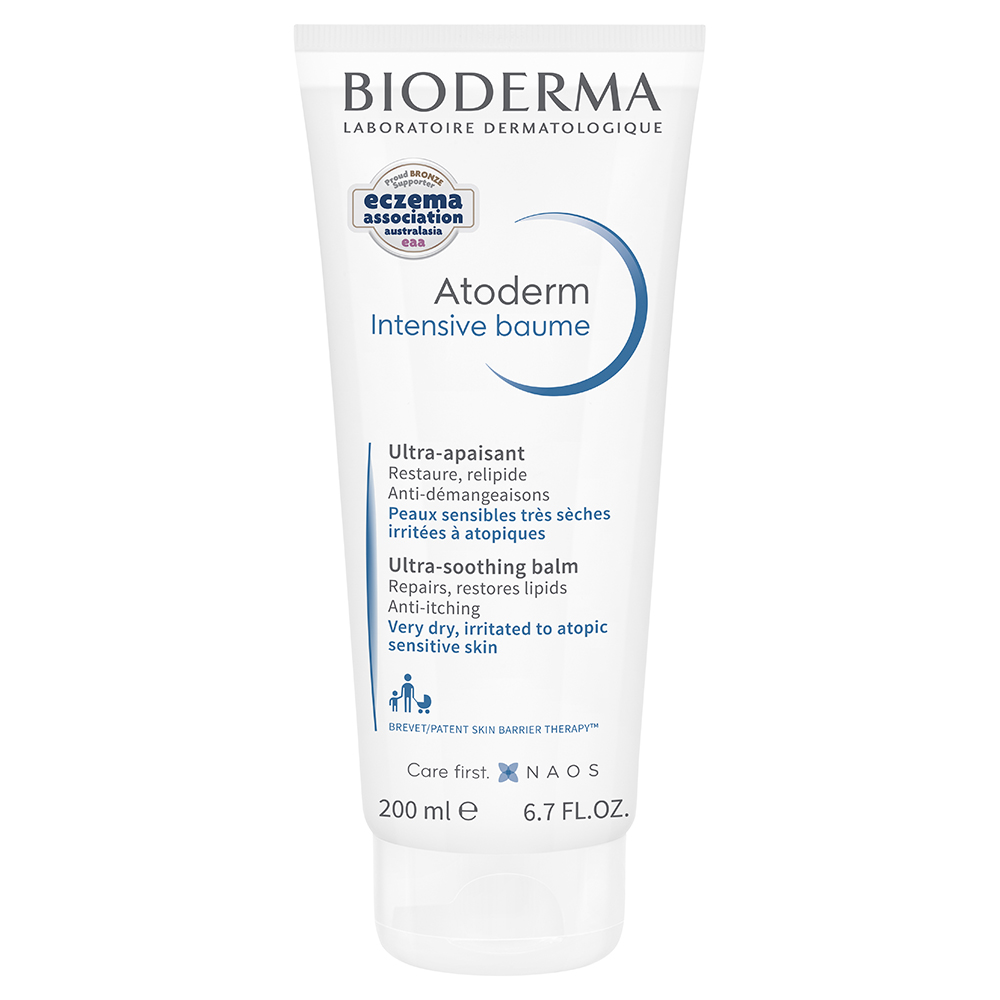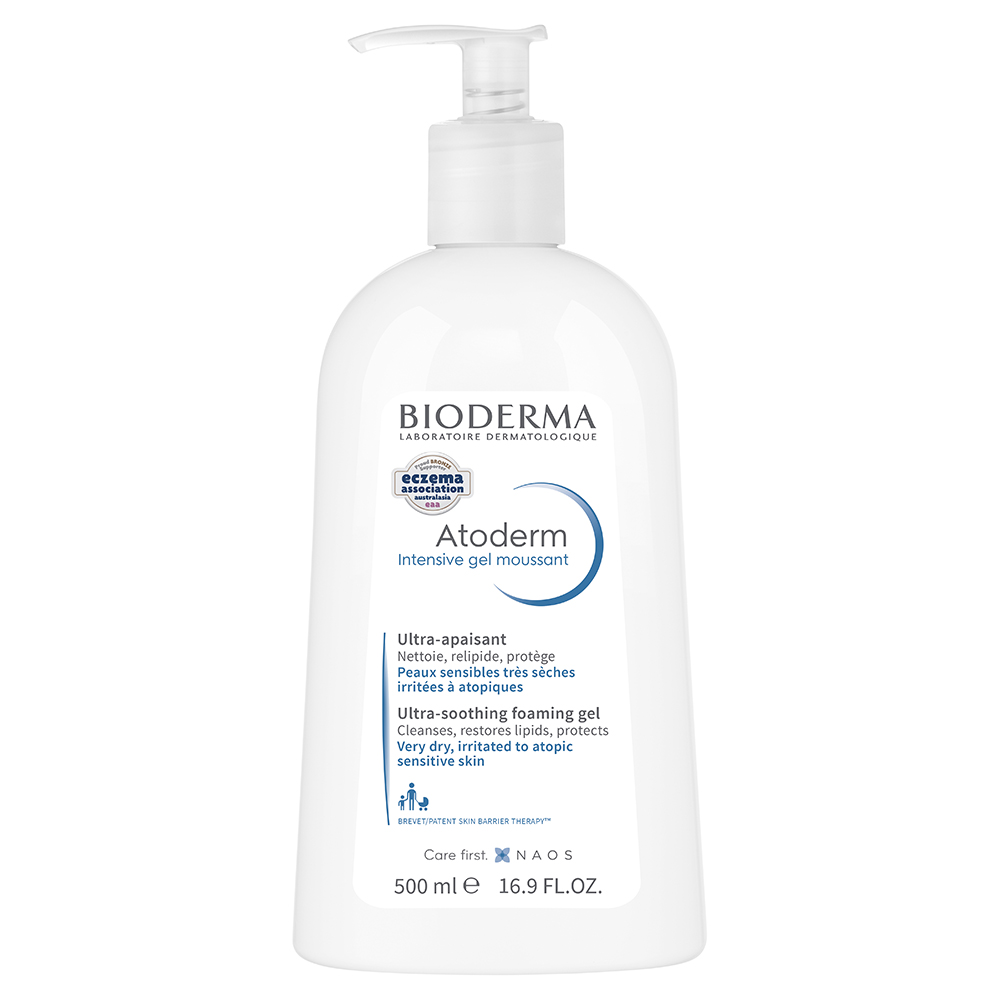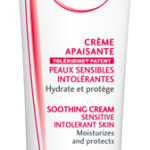A couple of months ago, I was lucky enough to travel to the French Riviera with cult pharmacy brand Bioderma, makers of the original micellar water. Part of my trip was about understanding the beauty secrets of those oh-so-chic French women (you can read about it here), but I was also there to learn all about the skin and to discover the best sensitive skin care tips. Bioderma specialises in sensitive skin and works with a large number of dermatologists, hospitals and universities around the globe to better understand – and treat – it.
Fortunately I don’t have truly sensitive skin but I do occasionally get eczema and I suffer fairly regularly from complexion freakouts: days when I experience seemingly random skin irritation on the face. Think redness, a tight and dry feeling, and inflamed bumps under the surface, and you’ll start to get the picture. If I could find an answer to this issue, I thought, I’d be a happy lady!
In France I learnt that Bioderma approaches the skin as its own “eco-system”, one that responds to the environment around it and that can become disturbed or unbalanced. That definitely sounds familiar to me! Treating it should therefore involve bringing the skin back into balance. Here’s how to go about it…
Understand your degree of sensitivity
In Europe, 9 out of 10 women claim they have sensitive skin, according to an IPSOS survey. This sounds like a staggering statistic but it’s important to remember that there’s a whole spectrum of sensitivity, charting everything from my random freakouts to skin that is excessively dry and prone to atopy, a condition that includes eczema and dermatitis. All skin types can experience sensitivity at some point, and there’s often a genetic link. According to Bioderma, having one parent with atopy increases your chances of inheriting it by 30 per cent, and if both parents experience the condition, you have a 70 per cent greater chance of getting it yourself. Thanks, mum and dad!
While genes can increase your likelihood of experiencing eczema or dermatitis, flare-ups are often triggered in response to specific environmental or lifestyle factors, such as stress. For me, spending 26 hours on a plane to France was more than enough to set me off and so I headed for one of the famous local pharmacies. Here I discovered what is now my personal pick for best moisturiser for sensitive skin: Atoderm Intensive. I’ve used it day and night ever since then, and it really keeps my skin on a much more even keel. I still experience occasional freak-outs, but they’re fewer and much shorter lived. Personally, I tend to experience skin irritation on the face, but if you’re prone to it on the body, too, you could benefit from swapping to a soap-free cleanser, like this one.
Know your triggers
One of the sensitive skin care tips I’ve found most helpful is to understand which specific environmental factors are more likely to trigger an atopic reaction. As a sufferer of hayfever, I’ve come to realise that a bout of the sneezes will be accompanied by skin that looks red and feels itchy or more fragile. Understanding this connection helps it to feel a bit less random when my skin does freak out – and also allows me to reach for a remedy much faster. In my case, I find that Bioderma’s Sensibio Light really helps in those emergency moments. It’s light and immediately soothing, but also helps to build up the skin’s tolerance, for a longer-term effect.
Stick to the plan
While it’s helpful to have this remedy for any complexion crises, one of the best ways to manage sensitive skin is to think of it as an ongoing project – a marathon, not a sprint. Rather than waiting for a crisis, Bioderma has formulated all products to ensure that they’re hypoallergenic and able to be tolerated even by sensitive skin. In the labs that I visited, I was able to see how every single ingredient, as well as the final product, are tested at multiple stages in the production process – even the packaging is tested! In total, 125 quality control tests are performed on each product, from raw materials to finished bottle.
This is important because aggravated or irritated skin can lose its ability to effectively retain moisture, which then contributes to further sensitivity, becoming a vicious – and very itchy – cycle. And yet, studies have found that most people with atopic skin issues don’t stick to a proper treatment plan. As the French might say: quelle horreur!
So my final sensitive skin care tip would be simply to find what works for you – and stick to it.
Do you ever experience skin sensitivity? Do you find it difficult to stick to a treatment plan?








I didn’t realise Bioderma has products for sensitive skin. I wonder if all of their products are for sensitive skin.